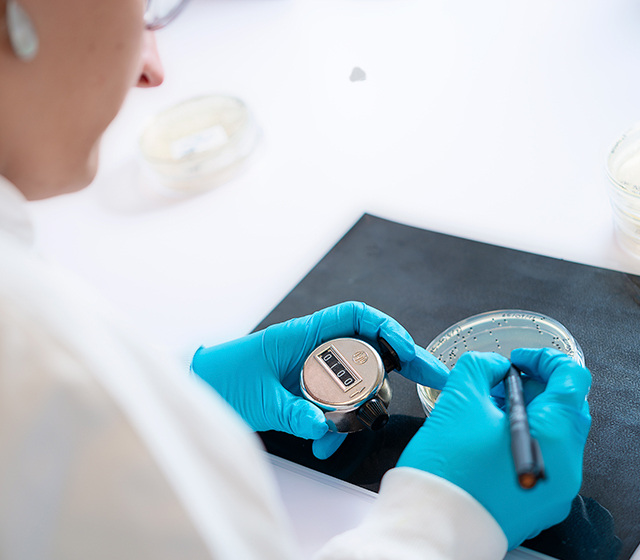Gastrin Peptides
Role of Gastrin
Gastrin, also referred to as Gastrin-17 or Little Gastrin, is a hormone synthesized in the stomach as a result of food intake.
Synthesized as a preprohormone (Big Gastrin, or Gastrin-34) and post-translationally cleaved to form a family of peptides with identical carboxy terminals, Gastrin is a major physiological regulator of gastric acid secretion and epithelial cell proliferation.
Both Gastrin-17 and Gastrin-34 are carboxy-amidated and partially tyrosine sulfated. Binding of gastrin to the CCK2/gastrin receptor requires carboxy-amidation, however sulfation is not necessary for binding to the receptor.
It has an important trophic or growth-promoting influence on the gastric mucosa. It is one of the hormones that both integrate and control digestive processes. Gastrin is competitively inhibited by cholecystokinin (CCK) and helps the pancreas and liver producing insulin.
Gastrin-releasing peptide, a 27-amino acid peptide isolated from the gut, stimulates the release of Gastrin, and shares a common C-terminal decapeptide homology with bombesin. Gastrin-releasing peptide is an important growth-modulating factor in developing lung epithelium. It is used as a tumor marker in the diagnosis of small-cell lung carcinoma, since it is known to be produced by these cancer cells.
Over-secretion effects
Over-secretion, especially in response to alcohol, and high levels of Gastrin may lead to the formation of gastric ulcers, which may also increase Gastrin release following Helicobacter pylori infection.
Excessive secretion of Gastrin, hypergastrinemia, may be the cause of a severe disease known as the Zollinger-Ellison syndrome. Gastrin may promote the development of cancers of the gastrointestinal tract.
References
- Aly, A. et al. Biochem. Biophys. Acta. 1704, 1 (2004);
- Iwasaki, Y. et al. J. Gastroenterol. 39, 831 (2004).
